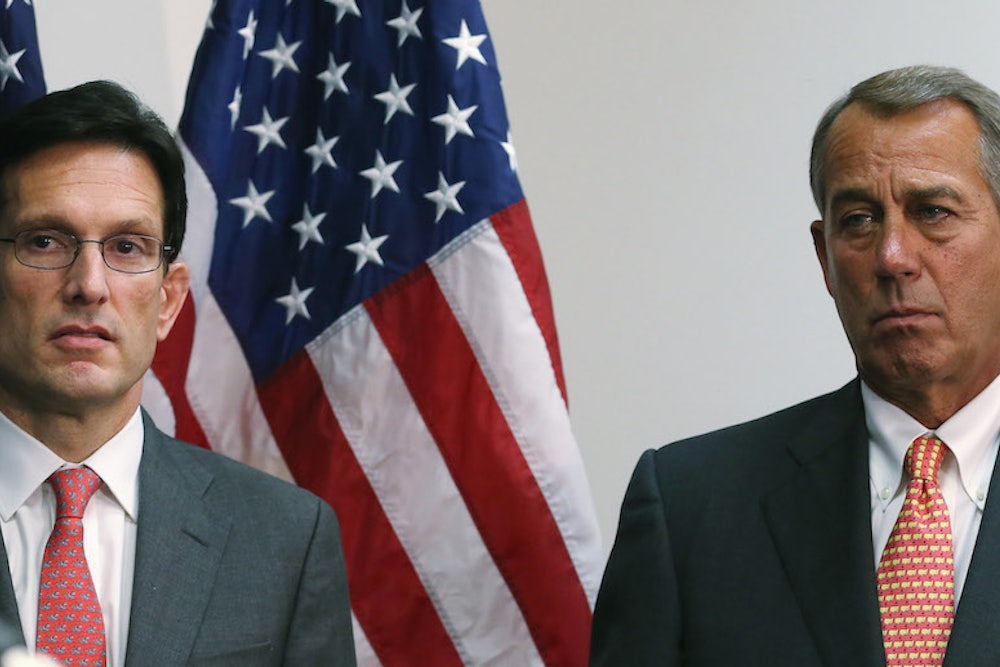You know that Obamacare alternative, the one that House Republicans promised to unveil in April? Their leaders announced on Tuesday that it’s not ready just yet.
This should surprise exactly nobody.
Republicans have been promising to get serious about agreeing on an alternative to the Affordable Care Act ever since they took control of the House in 2010. Somehow, it never happens. Conservative intellectuals have crafted some ideas and a few wonkish lawmakers, like Senator Tom Coburn, have actually proposed measures formally. But the conversation in Congress never gets past bland proclamations of principle. It’s the latest proof of what Jonathan Chait has called the “Heritage Uncertainty Principle”—the fact that conservative reform plans never become viable legislation, and exist exclusively for the use as rhetorical props when Republicans want to demonstrate they really care about health care.
One reason for the lack of real action is that embracing a plan would force Republicans to commit to the real-life tradeoffs that any reform plan would require. For example, Republicans love to say that, under their schemes, health insurance premiums would be lower. That’s generally true. But there’s a reason the insurance would cost less: It would cover a lot less. People might continue to have the skimpy policies that were widely available before Obamacare—plans with minimal coverage of prescriptions, for example, and frequently no coverage whatsoever of maternity or mental health care. Voters might not like that part so much.
But there are other reasons Republicans may find it hard to craft an alternative. The general idea of the Affordable Care Act—creating a competitive private market, through which people choose plans and weigh choices of cost and coverage individually—is pretty much the only way to achieve universal coverage through private insurance. And, as my colleague Danny Vinik notes in a new installment of Bloggingheads, dislodging the benefits of Obamacare—like coverage of pre-existing conditions—is now more or less impossible. Republicans have been loathe to acknowledge these facts. But that may be changing. In an interview with Sahil Kapur, of Talking Points Memo, an anonymous Republican aide admits as much:
As far as repeal and replace goes, the problem with replace is that if you really want people to have these new benefits, it looks a hell of a lot like the Affordable Care Act. ... To make something like that work, you have to move in the direction of the ACA. You have to have a participating mechanism, you have to have a mechanism to fund it, you have to have a mechanism to fix parts of the market
It’s just one anonymous quote, obviously. But it’s confirmation of what liberals have been saying all along—that Obamacare is actually a variation on market-oriented reforms once touted by a prominent conservative think tank (the Heritage Foundation) and implemented by a prominent Republican governor (Mitt Romney, in Massachusetts). And while Republicans still won’t admit this publicly, the blind quote is one more sign of a trend my colleague Brian Beutler has been chronicling. Republicans are finally, if grudgingly, recognizing that the Affordable Care Act is here to stay.
